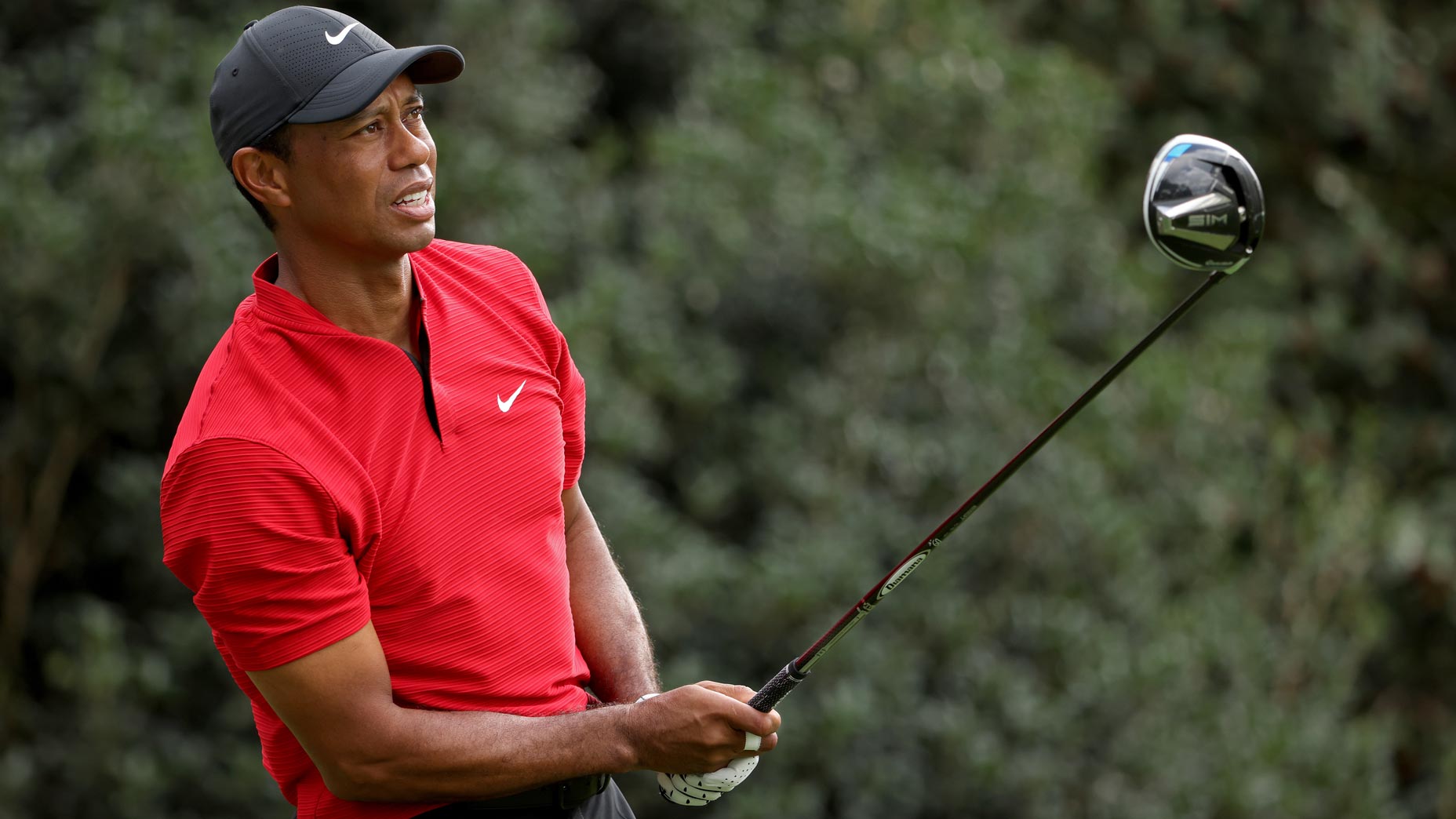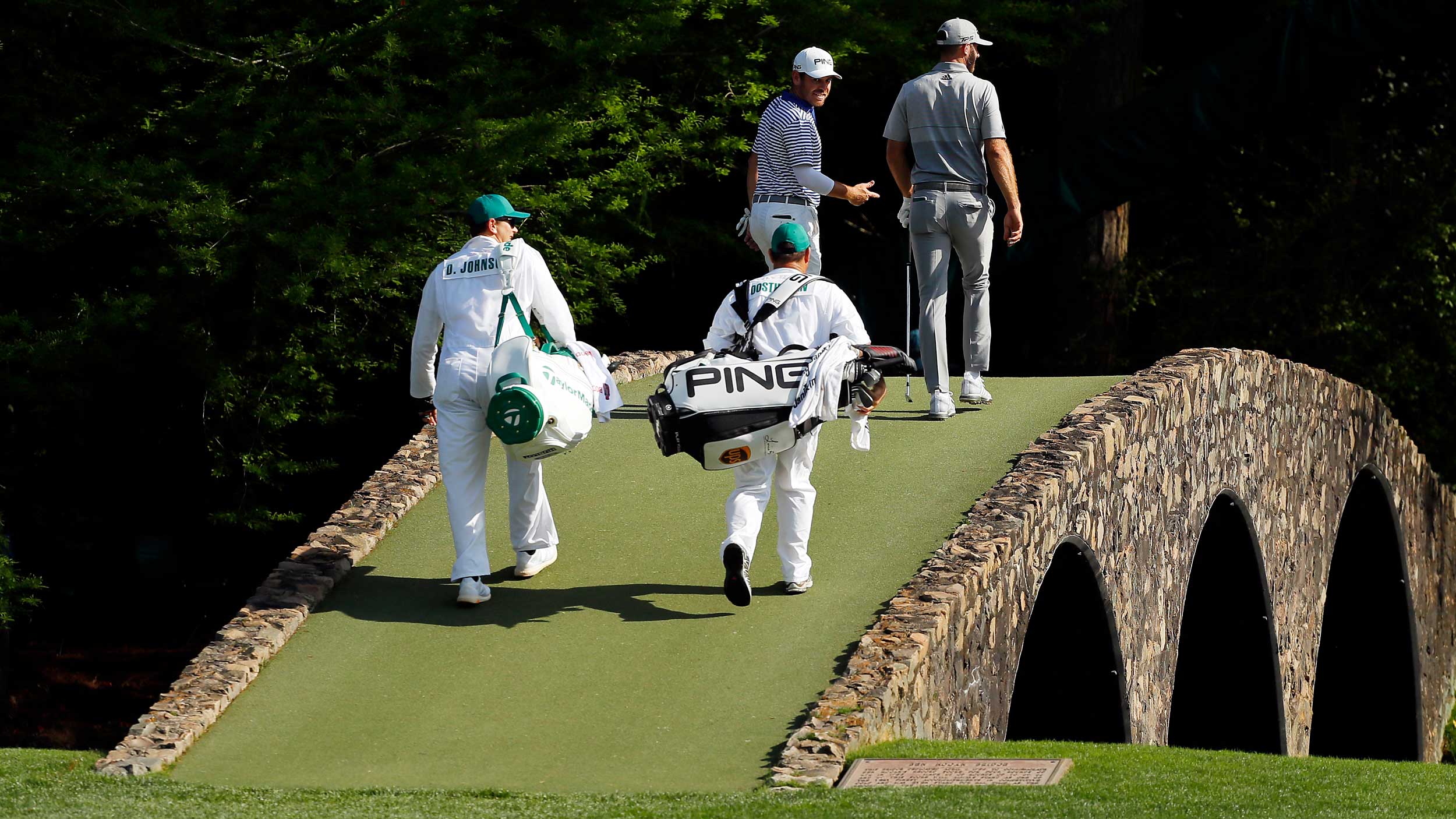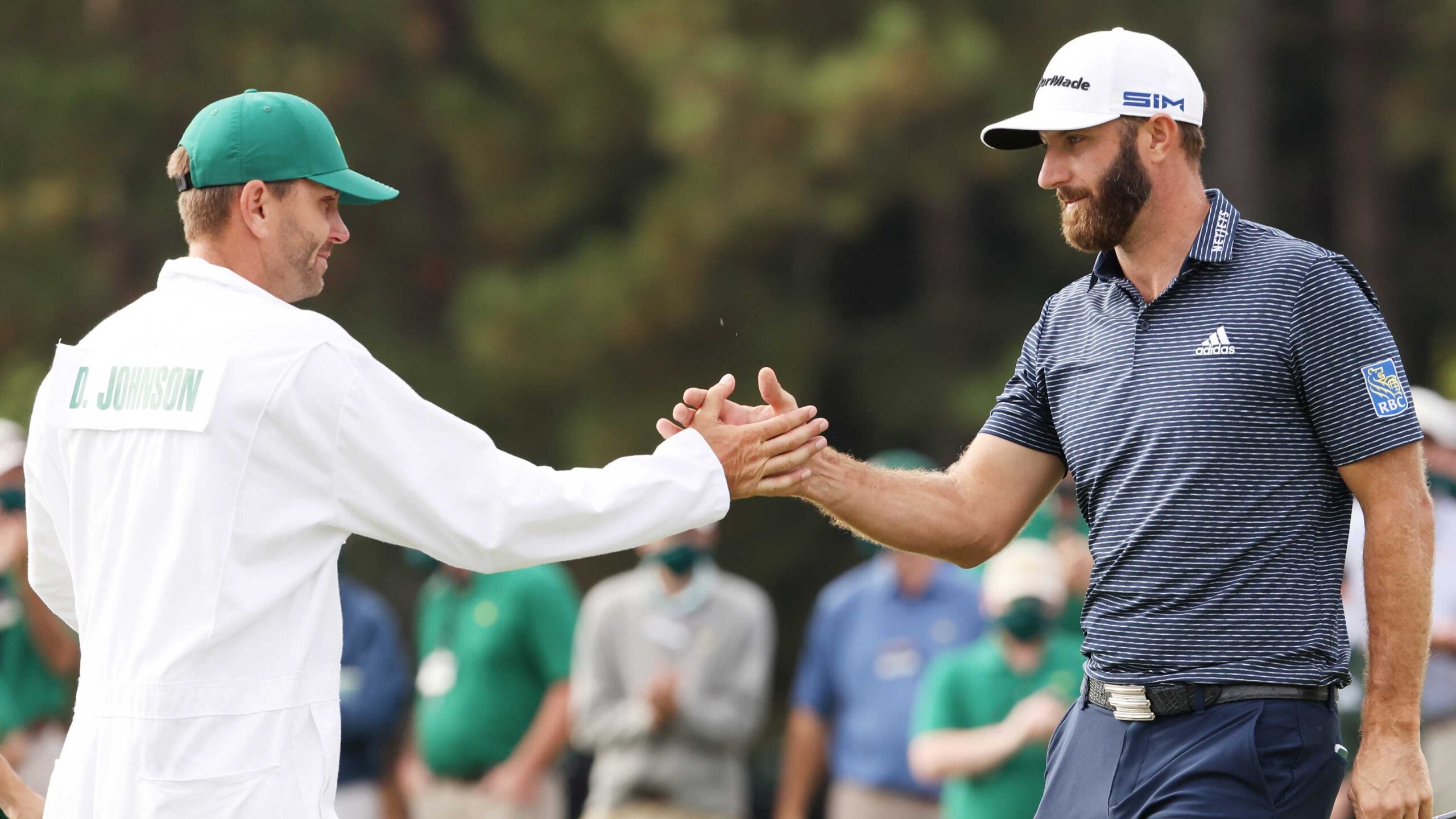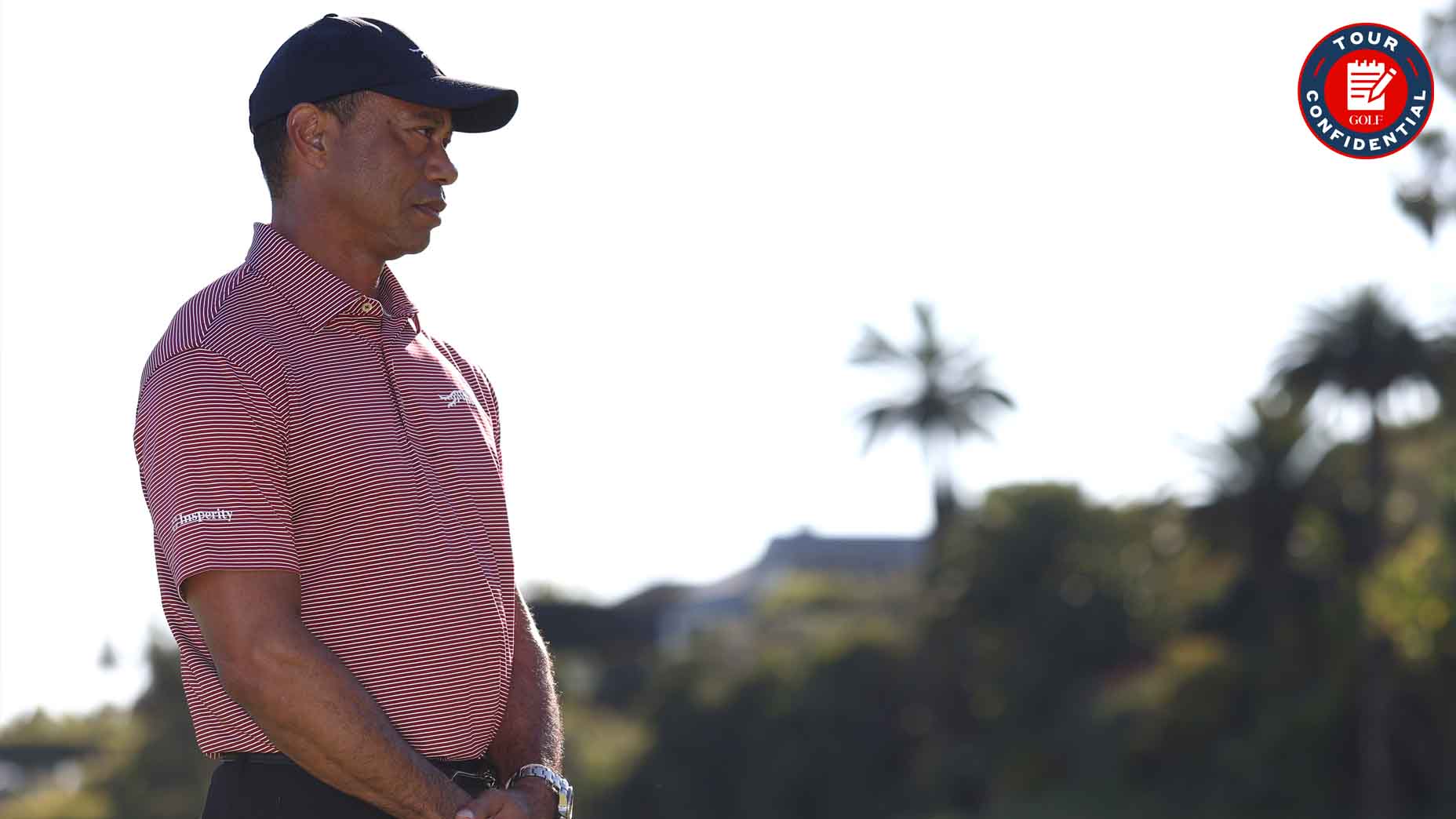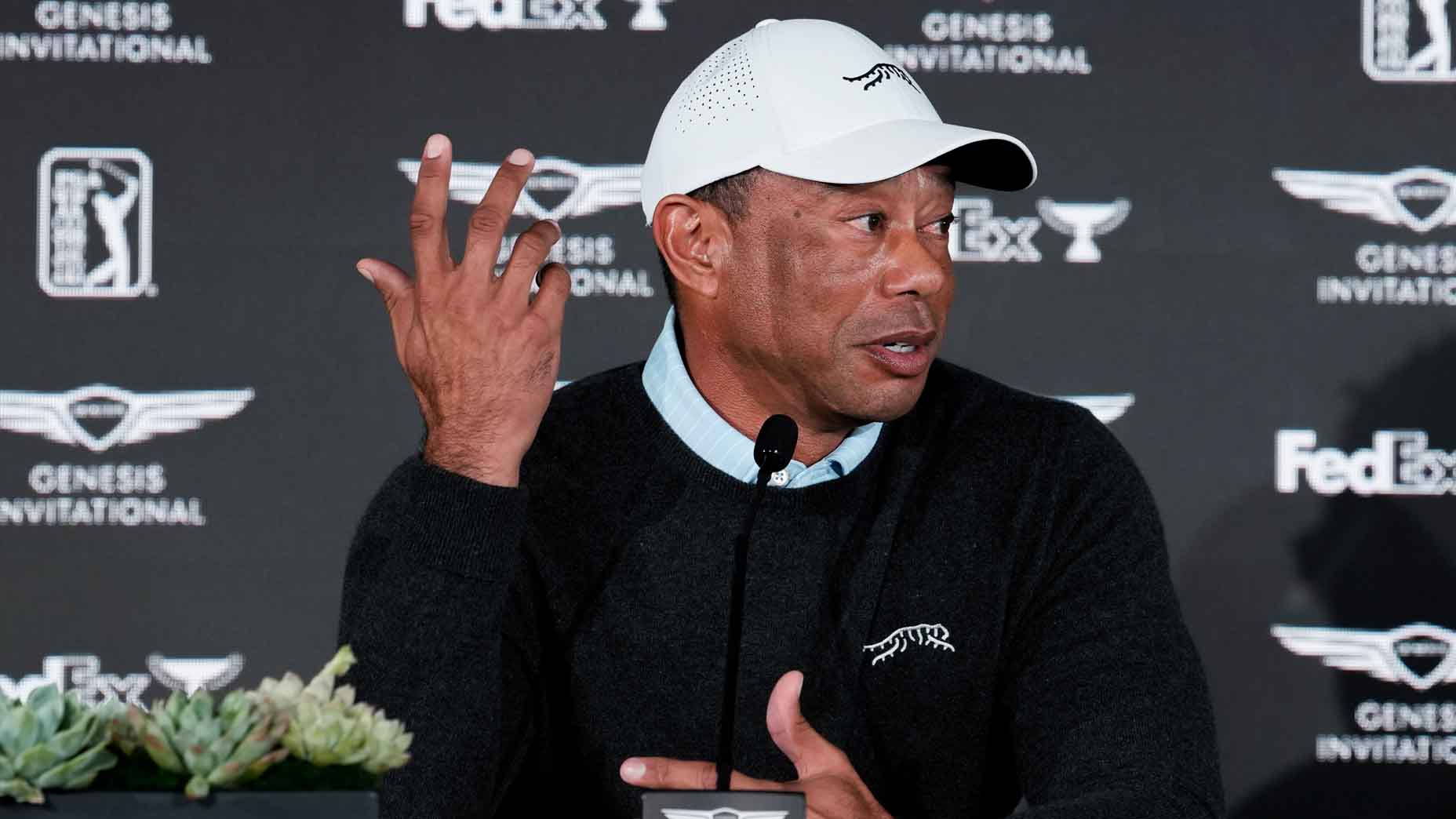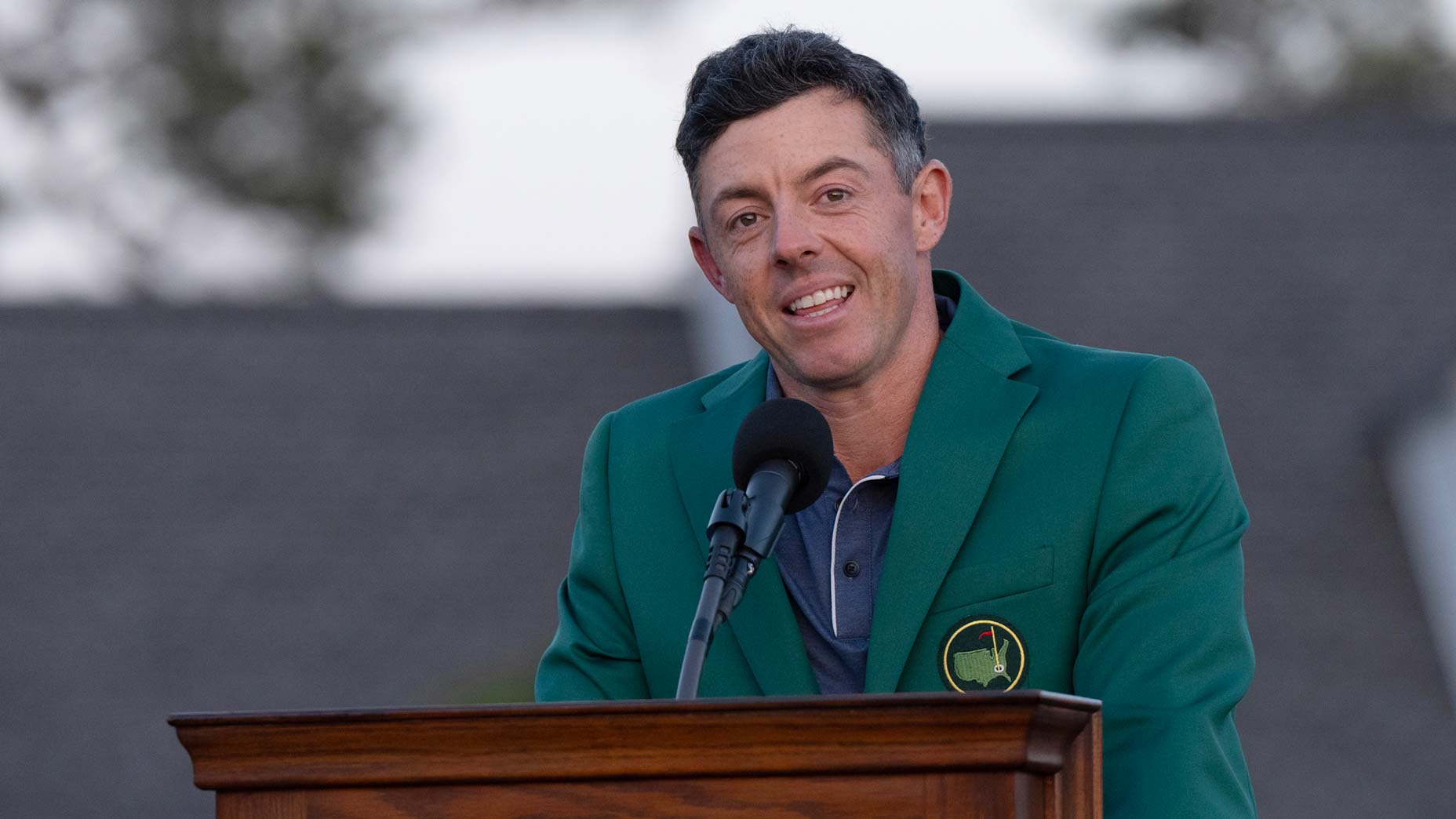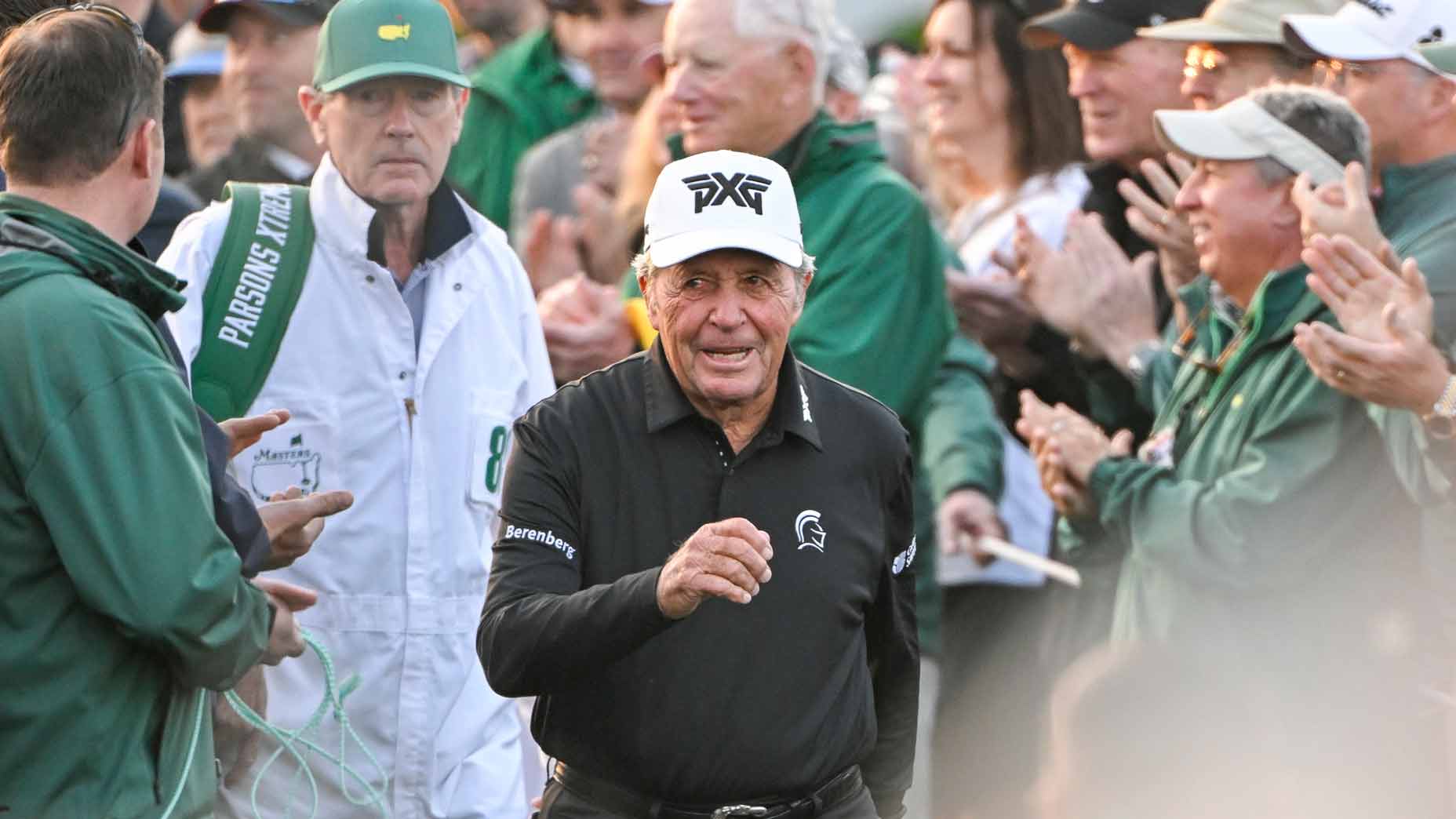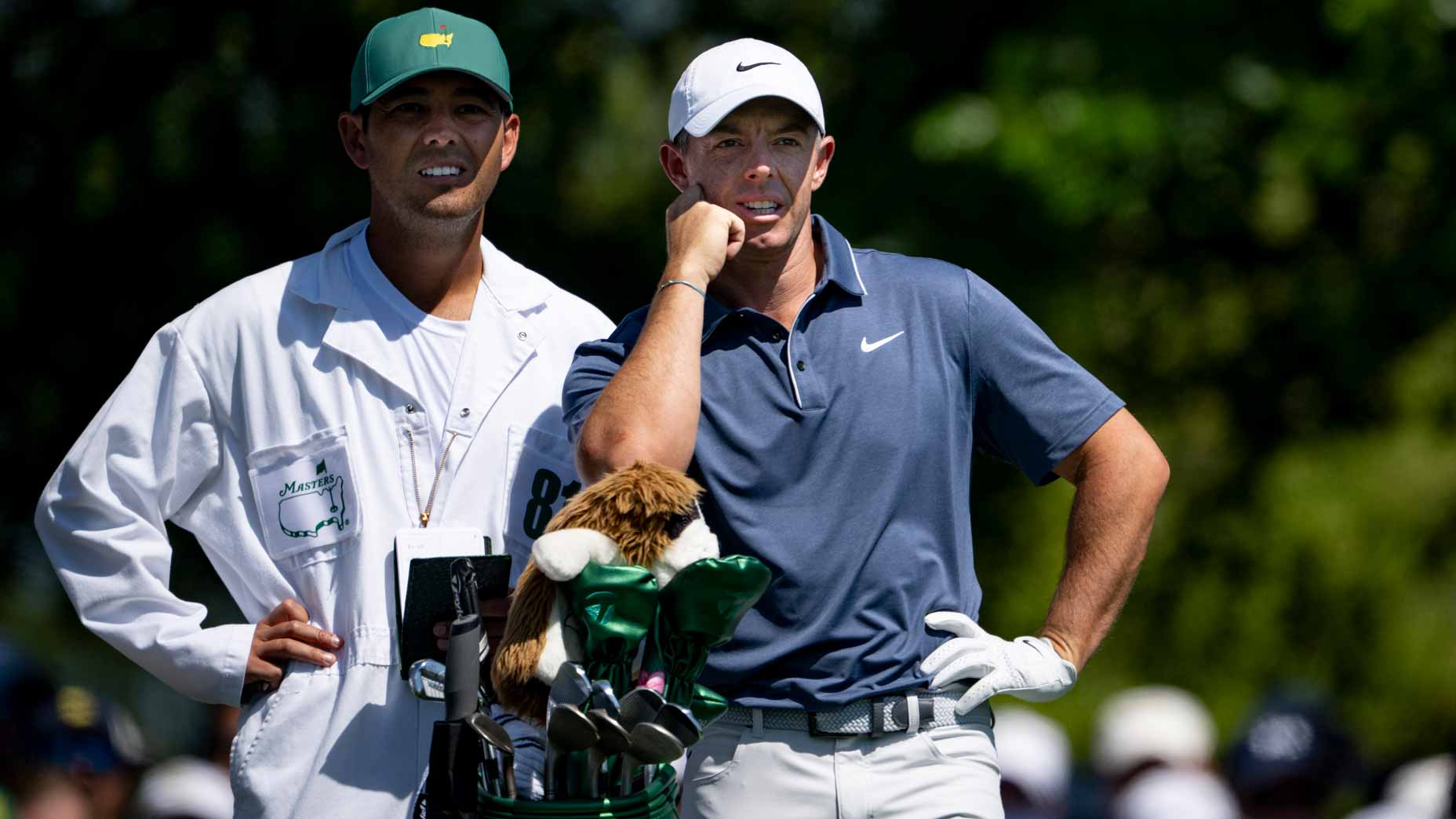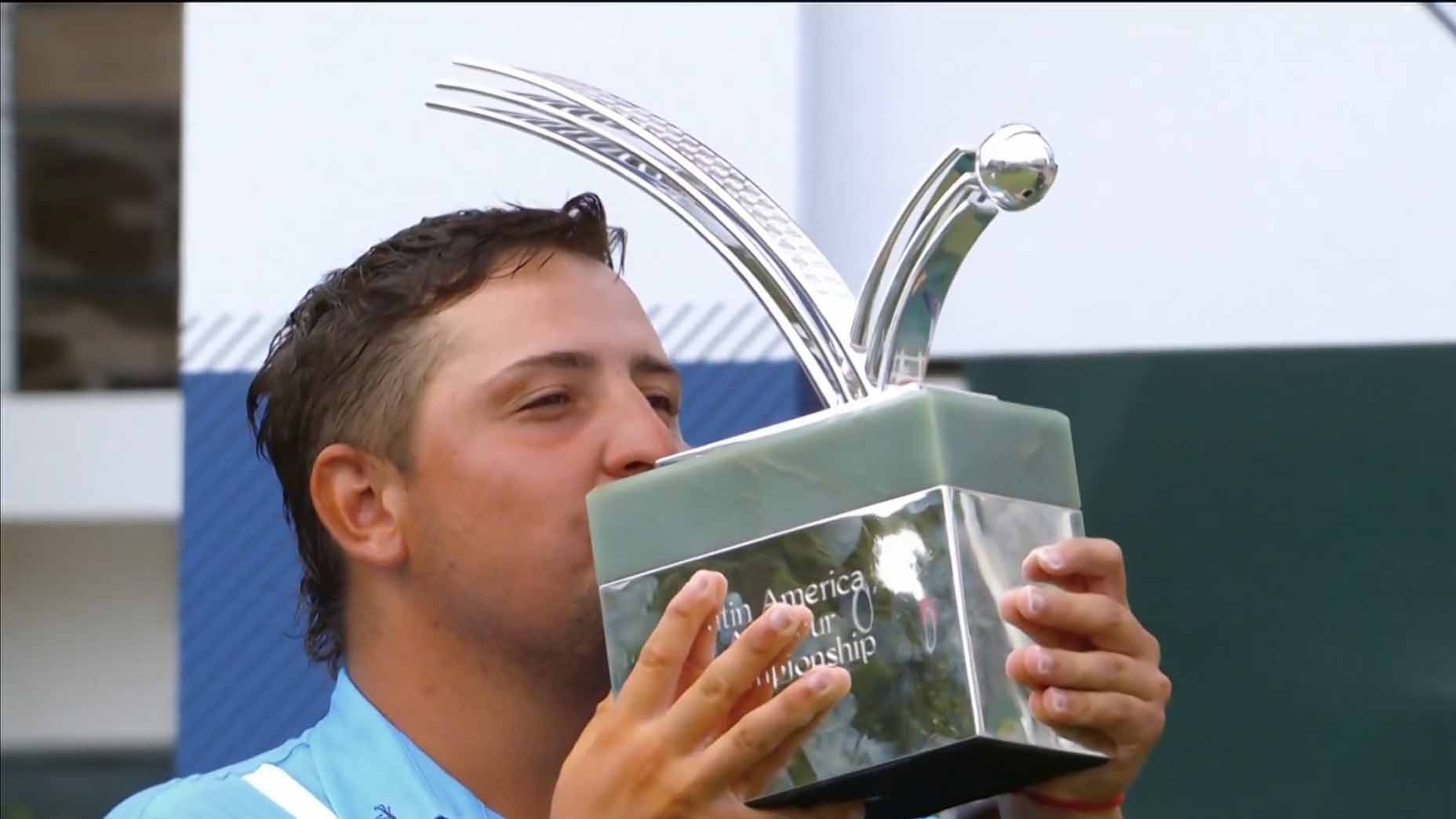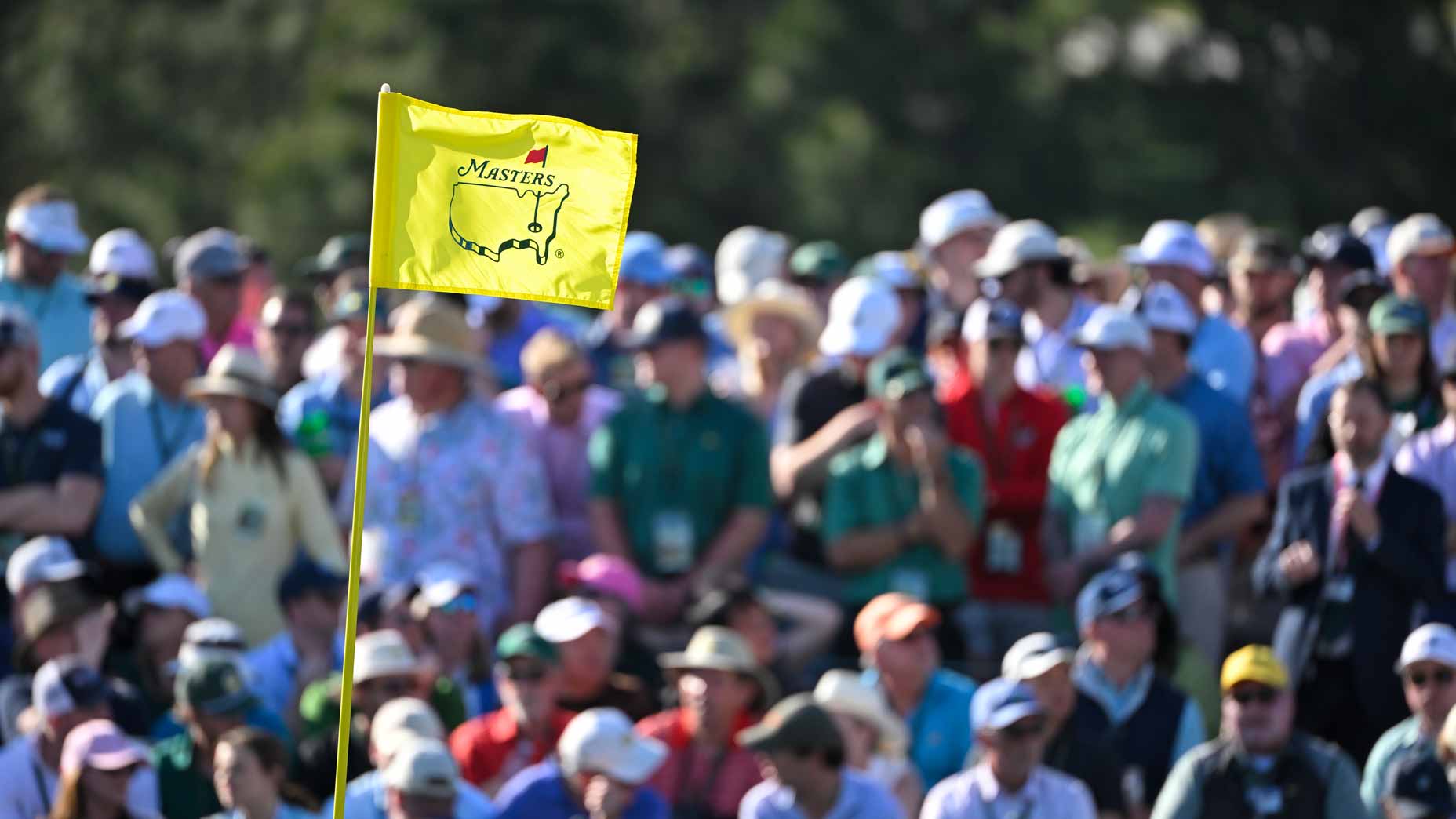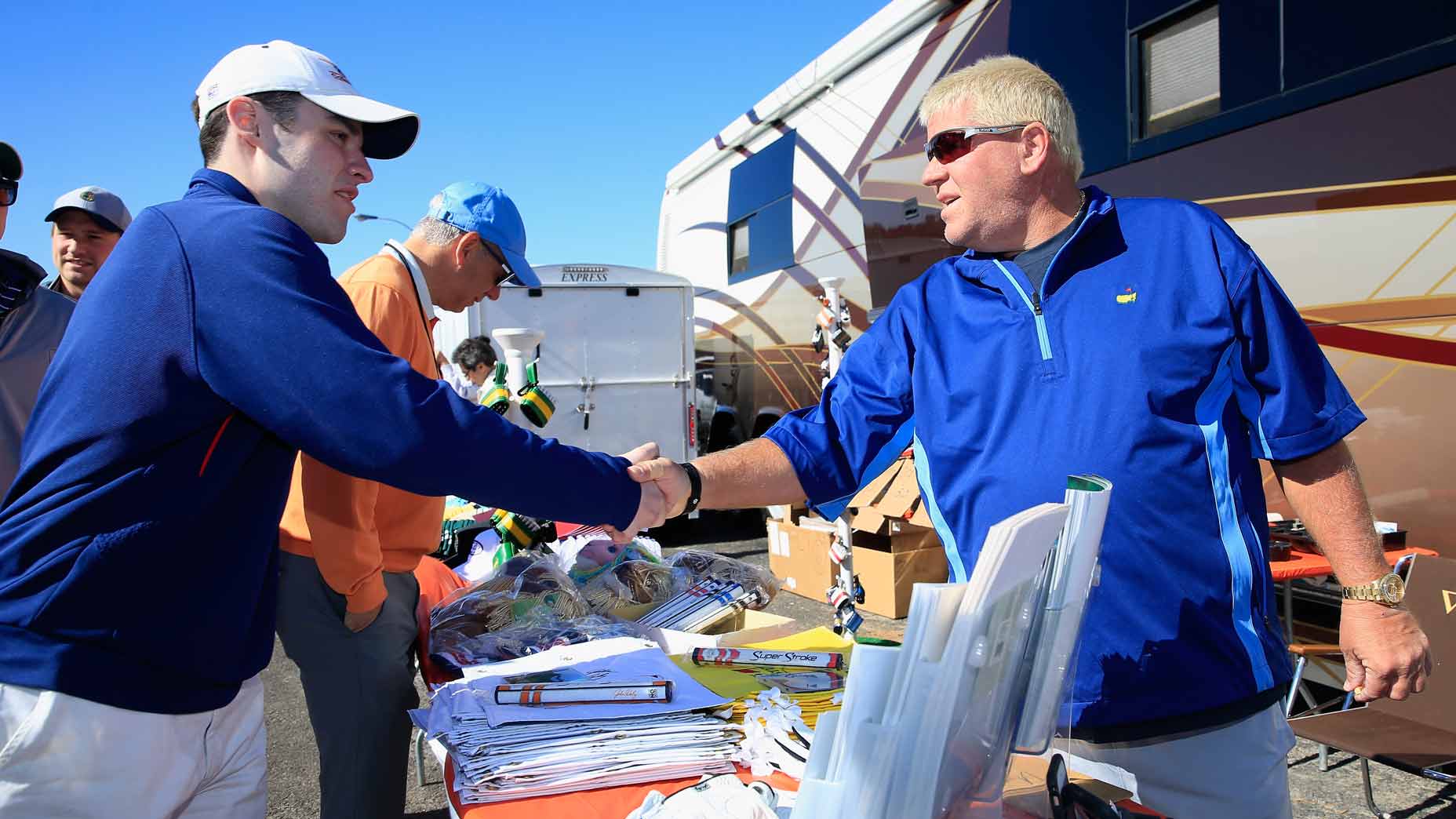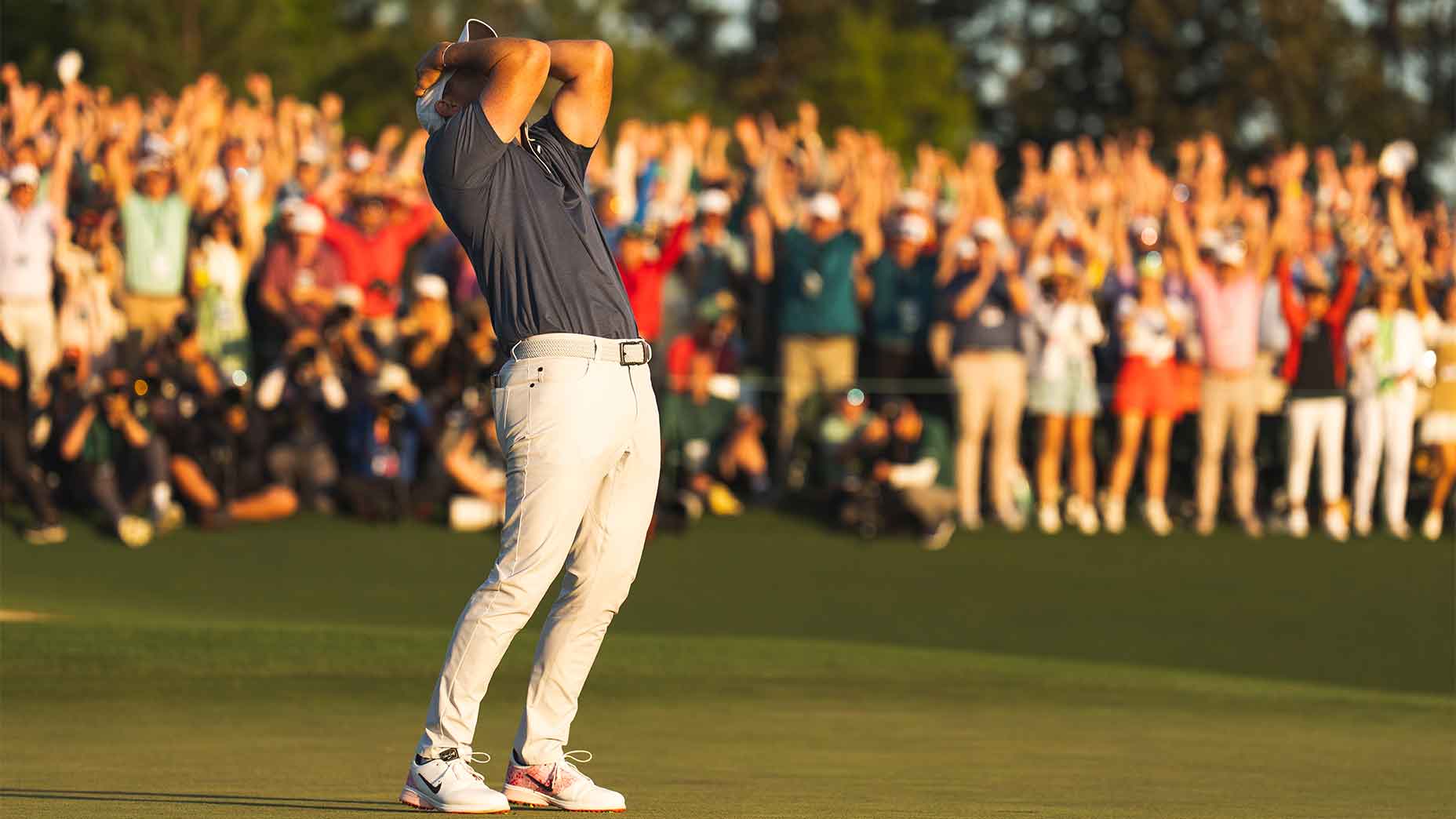AUGUSTA, Ga. — At last year’s Masters, Tiger Woods made a 3 at No. 12. Then he made birdies at 13, 15 and 16.
At this year’s Masters, Woods made a 10 at No. 12. Then he made birdies at 13, 15 and 16.
On the scorecard, the obvious year-over-year difference was starkest on the 12th. In person, the scene at 16 was the bigger shock.
When Woods stuck his 16th tee shot to 2 feet in 2019, the ground shook. The roar echoed ’round the property. It backed Brooks Koepka off his tee shot at No. 17. Hell, Michael Phelps lost his mind celebrating in the background. Woods had essentially just won the Masters.
When Woods stuck his tee shot to 2 feet in 2020, exactly nothing happened. Three people clapped. Very literally three people. “Good shot,” caddie Joe LaCava muttered. It was so still you could hear the CBS guy relaying clubs up to the tower.
“Scottie Scheffler: 7-iron.”
Woods hadn’t just won the Masters. He hadn’t really won anything. A handful of volunteers and cameramen lined the rear of the green. Besides that, the only people watching were Woods’ girlfriend Erica Herman, Woods’ manager Rob McNamara and a single reporter. Certainly no Michael Phelps.
“As nice as it is to be able to actually see what’s going on, I miss the fans,” Herman remarked as Woods strode towards the green. She was hardly the only one. But what Woods was doing was really significant — even if there was nobody there to see it.
Why this Amen Corner secret is a favorite among Masters contestantsBy: Alan Bastable
Here’s the thing: As horrifying as it was to watch Woods make 10 on No. 12, there was no real mystery to it. It wasn’t a shank or a chunk or a choke. He just missed the green in the one spot where you can’t.
“It’s not like he clanked it out there,” LaCava said afterwards. “He was 10 feet from being okay.”
Ten feet and a world away. Two water-balls and eight strokes later, Woods admitted that he felt suddenly alone. “This sport is awfully lonely sometimes,” he said. “You have to fight it. No one is going to bring you off the mound or call in a sub. You have to fight through it.”
His bounce-back held far more intrigue. Woods pounded a drive down the fairway at the par-5 13th, found the green and two-putted for birdie. He negotiated a challenging two-putt par at 14. He hit a challenging chip stone-dead at 15 to set up birdie. His tee shot at 16 guaranteed another one. At 17, he kept it going: Driver, flagged iron shot, made putt, birdie.
Woods found the fairway at 18. He landed his approach just a foot from the hole, and although it spun back he was left with a good look up the hill. The defending champion is typically showered with applause when he approaches the 18th green on Sunday, but as Woods walked up to mark his ball, nobody clapped.
“We’ve gotta give him something,” McNamara said, and began applauding on his own. One woman joined in, then so did the man sitting with her, and soon each one of the two dozen onlookers was clapping for the five-time Masters champ. It was sad and strange but mostly it was nice and it was genuine. And then he poured in the putt for a fourth consecutive birdie.
Woods’ 12th hole was literally the worst of his career; he’d never made a septuple-bogey nor recorded a double-digit score on a hole. Woods’ performance on the closing five holes was the best of his Masters career; he’d never played those six holes in five under par. That can’t be a coincidence.
“Yeah, look, he had a bit of a disaster on that hole, didn’t he?” said Woods’ playing partner Shane Lowry, who made birdie at No. 12. “Look, it happened, and what a finish. He seemed to hit every shot stone-dead for the rest of the round.”
Lowry was awed by the same thing that Woods — and even LaCava — treated as matter-of-fact.
“Well, it was good,” LaCava said, understated as ever. “You try to birdie every hole.”
Woods echoed the sentiment. “You just have to turn around and figure out the next shot, and I was able to do that coming home,” he said.
The thing is, you really don’t. There’s no rule that says you have to figure out the next shot, or that you have to brush it off, or that you even have to keep trying at all. You can throw your ball in the water and snap your wedge in two and say forget this and mail it in the rest of the round. That’s probably how it goes in your foursome and much of the time that’s how it goes on the PGA Tour, too. That’s what made Woods’ furious charge to T38 a small triumph of the human spirit.
A champion unlike any other: Dustin Johnson wins the Masters for his first green jacketBy: Nick Piastowski
Last year’s win capped off Woods’ career comeback. It was a win for trying, and trying more, and not giving up. As it turned out, this year’s loss was about the same thing.
Woods did admit that the trying does take its toll. He’s 44, and prepping for rounds of golf is more difficult than ever. Saturday he was up before 4 a.m. to prep for his round. Sunday was about the same. There may come a point for Woods when the reward doesn’t justify the output, where the drive isn’t worth the work that goes into starting the engine.
“There are days when mentally, it’s harder to push than others just because physically it’s just — my body just has moments where it just doesn’t work like it used to. No matter how hard I try, things just don’t work the way they used to, and no matter how much I push and ask of this body, it just doesn’t work at times.
“Yes, it is more difficult than others to be motivated at times. Yes, because things just ache and have to deal with things that I’ve never had to deal with before.”
Woods is at the point in his career where he can still contend; he’s also at the point where he can consider the end. It’s hard to read that quote and not think about a time when there will be a Masters Sunday without him.
But that would be missing the point. Woods just birdied five of his last six holes. Until an hour ago he was the Masters defending champ. The next Masters is just five months away, and Woods is already gearing up for it.
Lowry said it best:
“I mean, he’s Tiger Woods, isn’t he? He’s the best of all time.”
